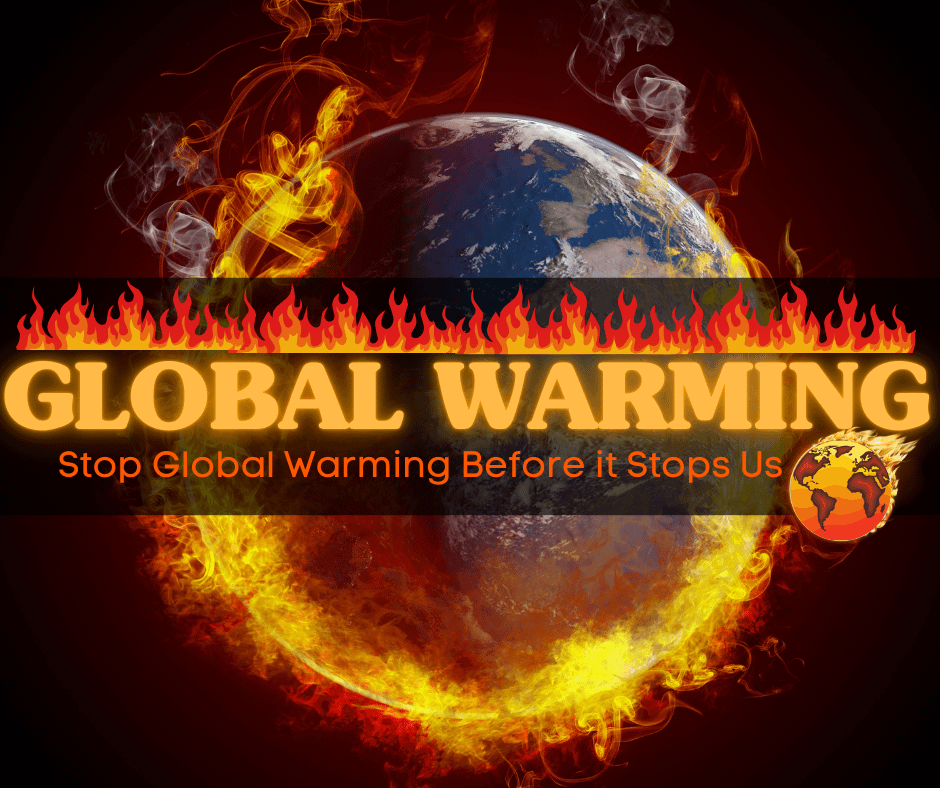Fight Global Warming: Effective Strategies and Actions

What is Global Warming?
Climate change is among the leading challenges that the world needs to address in the current generation. The release of more greenhouse gases into the atmosphere contributes to a rise in temperature, frequent incidences of natural disasters, and alterations to habitats. The good news is that something can still be done to reduce global warming; however, this must be done now. This article will elaborate on the various factors that lead to this and the effects of global warming, as well as the measures that can be taken to fight global warming.
The causes of global warming.
Greenhouse Gas Emissions
The leading cause of global warming is the increase in the concentration of greenhouse gases in the atmosphere, such as carbon dioxide (CO2), methane, and nitrous oxide. These gases trap heat from the sun and, therefore, cause a greenhouse effect, resulting in the earth’s temperatures rising. Greenhouse gas emissions are most felt when fossil fuels generate electricity, transport, and industries.
Deforestation and land use conversion
Forests act as carbon sinks since they help remove CO2 from the atmosphere. However, deforestation—especially in tropical regions such as the Amazon—reduces this carbon stock and weakens the Earth’s capacity to address future emissions. Moreover, converting lands to agriculture and urban use contributes to the situation by releasing greenhouse gases and destroying ecosystems.
Industrialization and Energy Consumption
Global energy demand has risen significantly, leading to industrialization, especially among the developing countries. That is why, although the proportion of non-renewable sources in the total energy supply has declined, industries still use coal, oil, and natural gas at a record rate. This increases the level of CO2 emissions and the emission of gases and pollutants in the air and water sources, which are very detrimental to the environment.
Consequences of Global Warming
Rising Temperatures
The global climate has warmed by about one degree Celsius above pre-industrial levels and continues to do so. While this may not seem like much, even small changes in global temperature can have devastating effects on the environment, agriculture, and human health. These effects include heatwaves, droughts, and reduced crop yields, which threaten the lives of millions of people.
Melting Ice Caps and Rising Sea Levels
With the increase in global temperatures, there is the melting of ice caps and glaciers, which is increasing the levels of the sea. Large cities of the world, including New York and Mumbai, are at risk of floods. Moreover, the melting of the ice in the Arctic and the Antarctic regions, which has been a source of carbon and methane, also leads to a rise in the temperature.
Extreme Weather Events
Climate change is accurate, and this has increased the severity and frequency of natural disasters such as hurricanes, floods, wildfires, and heat waves. These events cause loss of lives and property and impact economies, particularly third-world economies, which are in a poor position to cope with such disasters.
Why We Must Take Action Now
Tipping Points and Irreversible Damage
Scientists have pointed out that the planet’s climate is close to specific ‘tipping points’ beyond which the effects of climate change will only increase. For instance, the melting of the ice in the Arctic region may cause a domino effect that enhances the rate of warming. When such thresholds are crossed, it becomes almost impossible to change the climate change process in the right direction.
Economic and Social Impacts of Inaction
The cost of inaction is steep. This is so because as global warming increases, it will increase economic shocks worldwide. This will decrease agriculture’s productivity, leading to a food shortage and high prices. Buildings along the coastlines will be submerged in seawater, and storms will destroy trillions of dollars’ worth of property. Further, climate change disasters will lead to millions of people’s displacement, resulting in humanitarian crises.
Practical Strategies to Fight Global Warming
Transitioning to Renewable Energy
One of the most efficient ways of Fighting global warming is the transition from fossil fuels to renewable energy sources like solar, wind and hydropower. These sources generate electricity without releasing greenhouse gases; hence, they help combat global warming. Countries like Germany and Costa Rica have already shown how the shift to clean energy is possible.
Energy Efficiency and Conservation
Improving energy efficiency is also a key component to fight global warming. This implies that more output is produced per unit of energy consumed in providing the same level of services, for instance, energy-efficient appliances, better insulation, or electric cars. This means that many greenhouse gases can be saved by making minor adjustments in energy consumption.
Reforestation and Afforestation
Tree planting is known as reforestation, while the establishment of new forests is known as afforestation, and both can help reduce CO2 in the atmosphere. These efforts sequester carbon, increase biological stock, restore ecosystems, and prevent soil erosion. For instance, China and India are in the process of implementing large scale afforestation programs to counter the impacts of climate change as well as desertification.
Sustainable Agriculture and Land Use
Global warming is caused by agriculture, and at the same time, agriculture is one of the industries that is most affected by the effects of global warming. Other measures such as crop rotation, minimum tillage and organic farming can also help reduce emissions and improve soil quality. Moreover, the quantity of food waste and the shift from the current high meat consumption can significantly decrease the carbon footprint of the global food system.
Policy and Government Actions to Fight Global Warming
The Role of International Agreements
Global warming is a worldwide problem, and as such, it requires the support of all the countries in the world. The Paris Agreement was signed in 2015, and its primary objective is to limit the increase in global temperature to more than two °C above pre-industrial levels. Governments must ensure they do not just pay lip service to the issue by setting challenging emission-cut targets and promoting green technologies.
Carbon Pricing and Taxes
As practice has demonstrated, carbon pricing or taxes are valuable tools to reduce greenhouse gas emissions. Carbon pricing is a policy that aims at making industries bear the cost of pollution they produce or encourage using clean energy. Sweden and Canada are two examples of countries that have applied carbon pricing and have proved that it is effective and can be introduced at a relatively low cost.
Supporting Green Technologies
Governments can also promote using green technologies such as electric cars, renewable energy and energy storage. Thus, financing innovations will contribute to the transition to a low-carbon economy and reduce the cost of combating climate change.
The Role of Individuals to Fight Global Warming
Reducing Carbon Footprint
While governments and large companies must bear much more of the burden in the fight against global warming, people can also do something. Ways that would assist you in reducing your carbon footprint include Cutting down on energy consumption, avoiding car travel, and opting for public transport.
Supporting Sustainable Businesses
The other way is to conclude with a decision that favors the purchase of goods and services from environmentally friendly companies. For example, consumers can purchase power from firms that rely on renewable energy sources or firms that do not utilize products from non-recycled plastics.
Advocacy and Raising Awareness to Fight Global Warming
Finally, people can speak and inform friends and other people they know about the problem, post information on social networks, and contribute to organizations that fight against climate change. Climate change is a global problem, and everyone can be the change, hence the pressure on governments.
Conclusion
We cannot afford to lose the war to fight global warming. The effects of global warming can be minimized by cutting down on greenhouse gases, transitioning from conventional energy to renewable energy, and encouraging sustainable practices. This is why governments, companies, and citizens should be concerned about ensuring that future generations can live on this planet. It is time to act.
